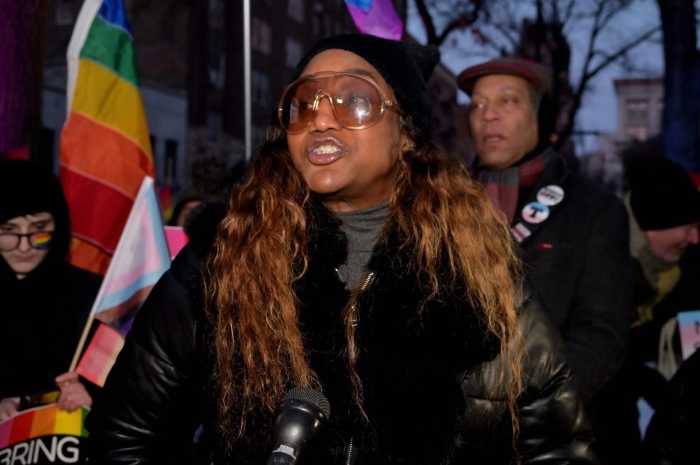In the first scene of “Close to You,” a shirtless Elliot Page looks pensively out the window of his Toronto apartment. It’s a re-introduction to his audience, since this is the first film he’s made after his 2020 transition. Likely the most famous trans man in the world, he produced and co-wrote the story of “Close to You” as well as acting in it. It imagines a version of himself (or a person very much like him) who never became an actor and left Canada. Page’s harrowing memoir reveals the abuse he underwent in Hollywood, and since then, he’s become the subject of vicious attacks by right-wing pundits like Jordan Peterson. All of this makes itself felt in “Close to You.” It drips with raw emotion, but its means of expressing that, devised by writer/director Dominic Savage, are overly familiar from other films about LGBTQ people’s tense reunions with their families.
Sam (Page) lives in Toronto with his roommate. He hasn’t seen his family, who live in a small town, in four years, but on the occasion of his dad’s birthday party, he decides to take the train to visit them. Even before he leaves, he’s a bundle of nerves, which his roommate picks up on. During the train ride, he sees Katherine (Hilary Baack), a close friend from his hometown, and chats with her, but she turns down his suggestion that they go out for coffee. A romantic tension between them motivates both characters’ actions. Once he arrives at his parents’ house, he shares a scene with all of his family members, as well as his brother-in-law. Sam sums up the trip, saying, “It’s hard to come home to a place where you don’t feel seen.”
“Close to You” treats Sam’s relatives as representatives of attitudes towards trans people rather than three-dimensional characters, exuding a similar passive-aggressive sensitivity that’s not as progressive as it wants to be. His brother-in-law is much worse, descending into “just asking questions” hostility. “Close to You” avoids backstory. (Even in the present day, it never tells the audience what Sam does for a living.) Sam alludes to a period when he was severely depressed but received no support from his family, but the full details are never spelled out. Yet the film’s structure is careful to hit a new plot point at least once every 10 minutes. Even though the dialogue was entirely improvised, “Close to You” never feels particularly free. The script’s outline remains very visible, as though it were dragging Sam along. At a certain moment when Sam is about to make a decision regarding his trip, I thought, “He’s not going to do that,” and was proven right within a few minutes. Katherine is the only character granted the capacity to make surprising decisions, but the importance she holds in Sam’s life is stated rather than rendered.
Page’s performance transcends cinematography that turns him nearly invisible at times. (Many points are made through language, such as his slightly hesitant rhythm saying “other queer and trans people” to his mother.) Indeed, both his entrance to the family home and the film’s most intense conflict take place in virtual darkness. Meant to match his unease, this leads instead to images weirdly disassociated from their characters. Not intended as a distancing device, the dark look becomes one. Furthermore, “Close to You” relies heavily on shakycam close-ups to match Sam’s anxieties.
Watching “Close to You,” the turbulence of directors like John Cassavetes and Maurice Pialat — whose scenes can feel like therapy roleplay sessions — comes to mind. But unlike them, Savage is unwilling to make a decision which doesn’t lead somewhere obvious or include a scene that doesn’t land a direct point. Subtlety wouldn’t suit “Close to You,” but its dialogue is still overly on-the-nose. A script that went through several more drafts rather than relying so heavily on improvisation (to the point where one scene has been cut down from a 54-minute take) could’ve lessened their heavyhandedness. Unlike Page, Sam isn’t a public figure, but his behavior reflects the impact of his dehumanizing perception as a symbol of an identity perceived as a crisis by right-wingers, rather than an actual person. The best aspect of “Close to You” is its centering of a trans man who refuses to take other people’s b.s., even when it’s stated politely. Page’s work here embodies this much better than the film built around him.
“Close to You” | Directed by Dominic Savage | Greenwich Entertainment | Opens Aug. 16th at IFC Center, Alamo Drafthouse Brooklyn and Manhattan





































